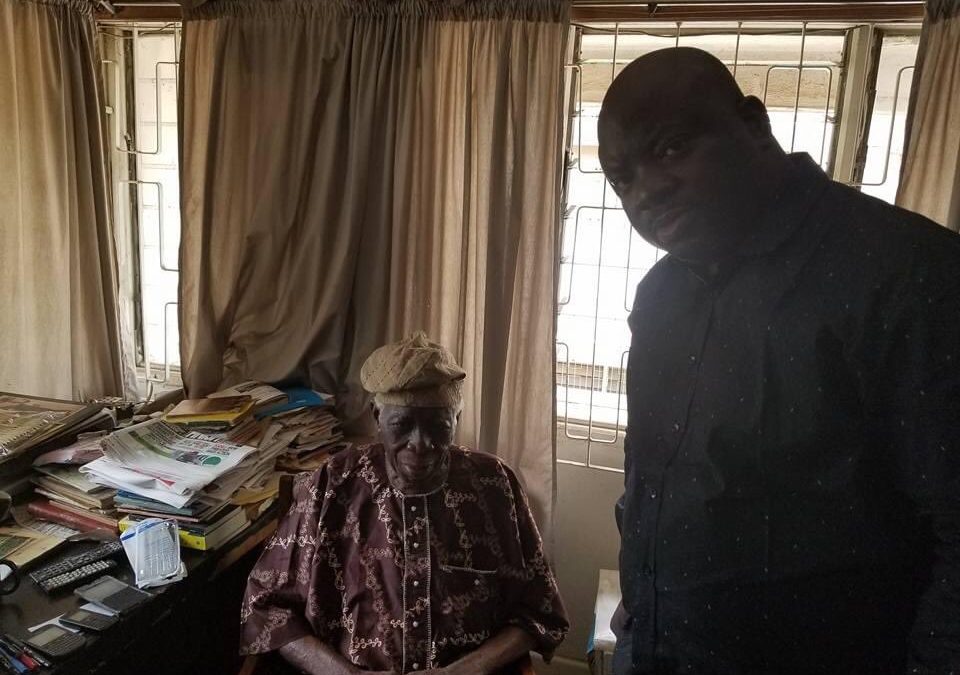This is the third of a six-part article series to celebrate the legacy of Dr Victor Omololu Olunloyo (1935–2025)
The Oke-Ado, Ibadan residence of Dr. Victor Omololu Olunloyo might appear modest from the outside, but stepping into his living room is like entering a cathedral of knowledge.
Books—tomes of every kind—line the walls, spill onto tables, and even rest in neat piles on the floor. In this sacred space of intellect and history, I was privileged to sit at the feet of a man whose mind spanned centuries.
Though he walked in slowly with the aid of a stick, the light in Dr. Olunloyo’s eyes revealed a soul still ablaze. He greeted us warmly and, without preamble, launched into what felt like a spontaneous masterclass in history, music, literature, engineering, and Yoruba culture.
He sang parts of Handel’s Hallelujah Chorus, recited Shakespeare from memory, and read aloud from Igbo Eledumare, switching effortlessly between English and Yoruba.
We watched in awe as he located his undergraduate and doctoral theses within seconds from among thousands of books. We were so amazed that one of us had to ask if he had once worked as a librarian.
Every book in his home had a story. But none were as extraordinary as the man who read them all. Share on XThere was no subject out of reach. Mention mechanical engineering, and he would take you through Castigliano’s Theorems. Mention classical music, and he would give you an impromptu lecture on Beethoven, Bach, and the composer Hitler admired most. He spoke with fondness of Fela and Hubert Ogunde.
As we moved to his garden, the tour continued. He showed us a hybrid orange tree developed at Obafemi Awolowo University and an ‘agbalumo’ tree whose seed came from the West Indies. With childlike excitement, he plucked a flower, climbed a concrete slab, and demonstrated the principles of centrifugal force as it relates to spacecraft energy generation. “Tell me,” he asked with a smile, “how does a spacecraft generate power in space?”
I was speechless. Dr. Olunloyo didn’t gloat. Instead, he beamed like a teacher pleased by the opportunity to share.
He then led us further into history—his own and that of his people. His family was the first to receive Western education in Ibadan in 1853. The missionary couple David and Anna Hinderer had taught his ancestors; St David’s Cathedral, Kudeti and St Anne’s Church, Molete now bear their names.
A walk through his garden was a science lesson. A talk with him? A lifetime masterclass. Share on XAs we listened, it became clear that Dr. Olunloyo did not just remember history—he lived it, embodied it, and preserved it in the way only true custodians of culture can. His life was not just a story; it was an archive.
And like all great libraries, the man himself was organized and vivacious.
In Part 4, we will explore Dr. Olunloyo’s time at Government College Ibadan, how he rose to become an academic champion after finishing his first year as 21st out of 23 students, and the influences that shaped his brilliant mind.

Without any iota of doubt, you are a gift to humanity, Bayo.
I pray that the Lord bless you beyond your imaginations.
Keep up the excellent job!